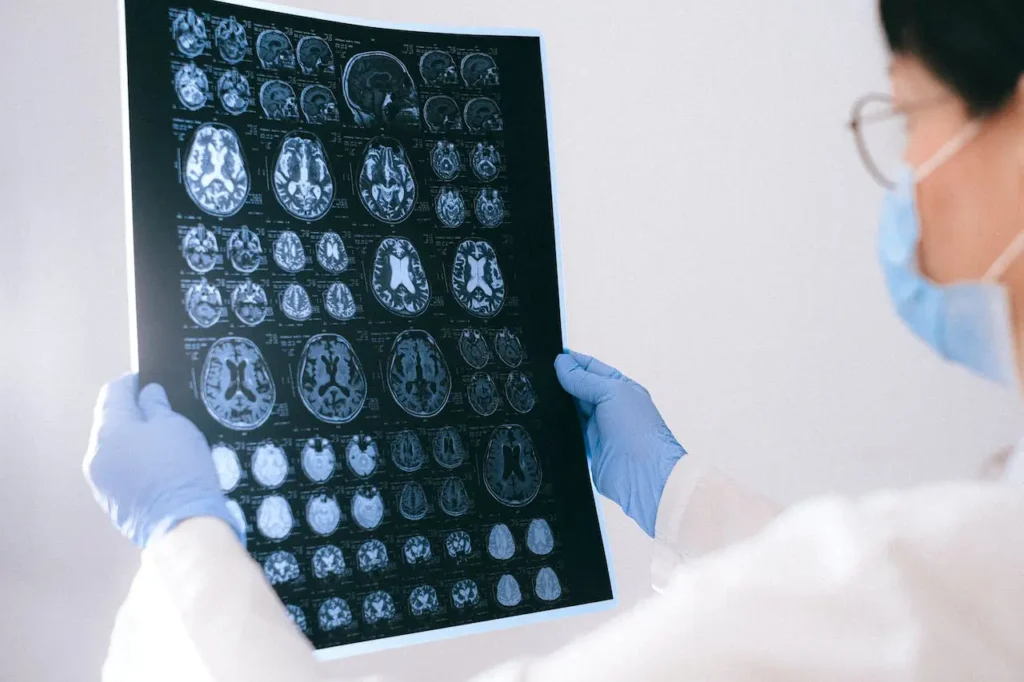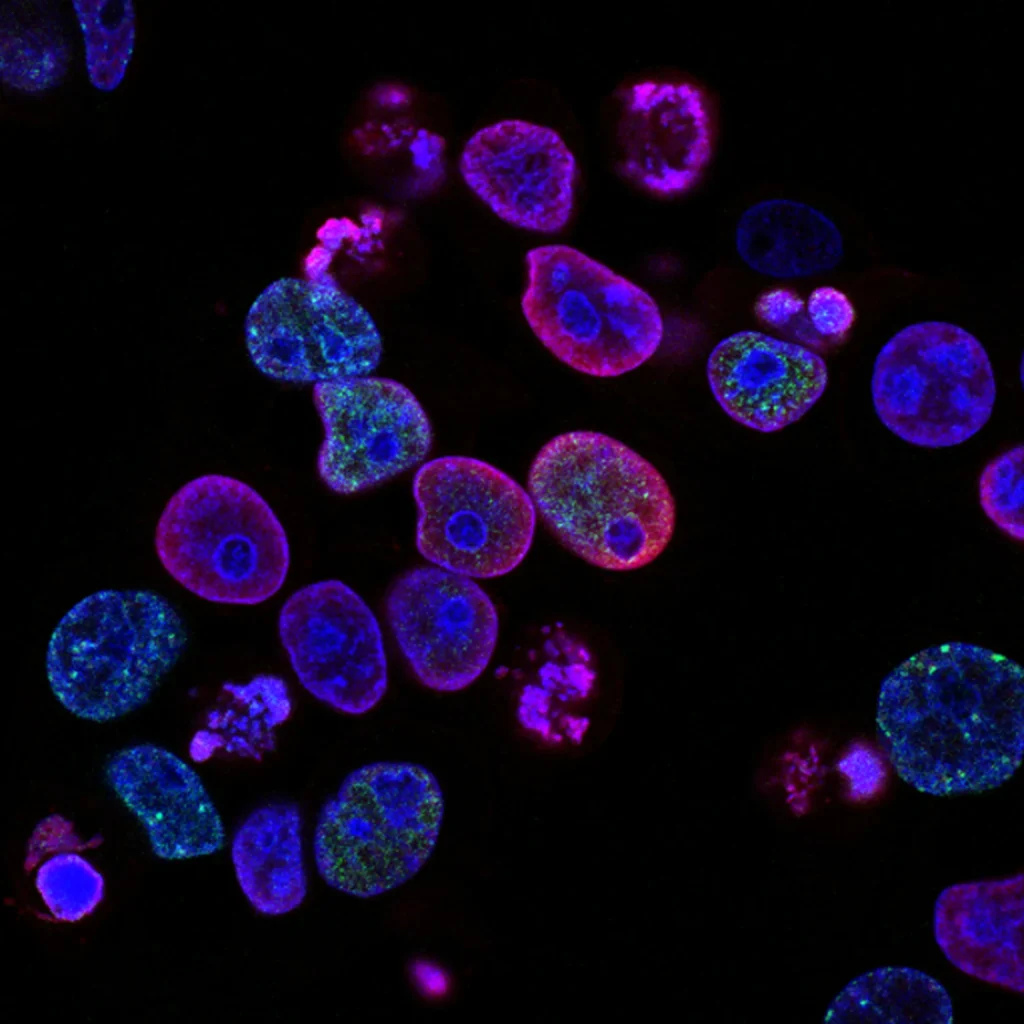10 Cognitive Stimulation Therapy Activities For Mental Agility
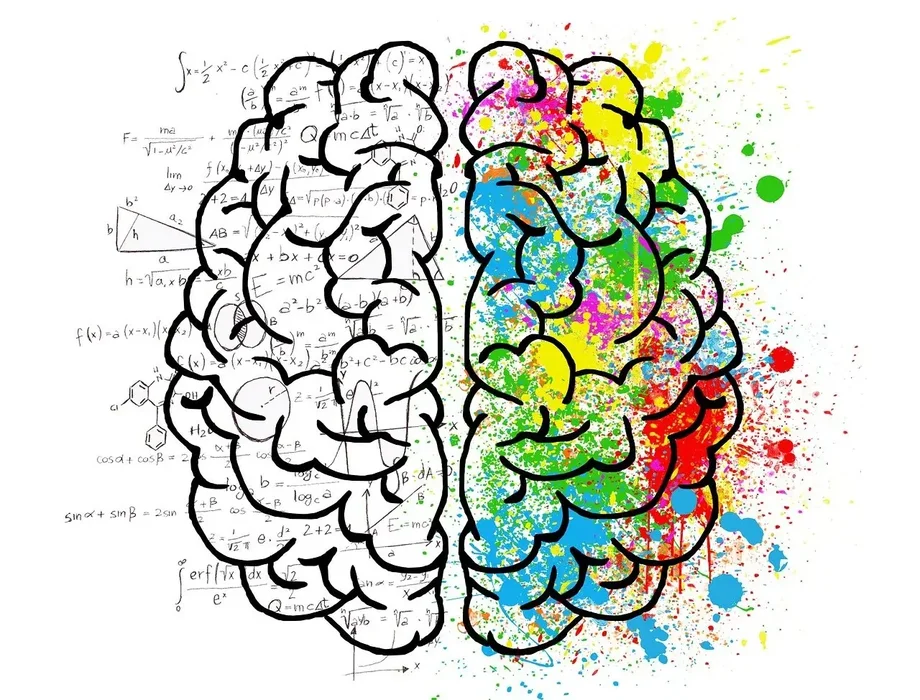
- What is cognitive stimulation therapy?
- Benefits of cognitive stimulation therapy
- Cognitive stimulation therapy activities
- How does cognitive stimulation therapy work for dementia patients?
- The role of caregivers in cognitive stimulation therapy
- Resources
- Recap of 10 Cognitive Stimulation Therapy Activities
- Conclusion
- Frequently Asked Questions (FAQs)
What is cognitive stimulation therapy?
This post may contain affiliate links, meaning I may earn a commission if you make a purchase, at no extra cost to you. I only recommend products I trust. Thank you for your support.
Cognitive stimulation therapy (CST) is a treatment method that aims to enhance cognitive function and overall mental agility in individuals, particularly those with dementia.
It involves engaging patients in stimulating activities that challenge their cognitive abilities and promote social interaction.
Cognitive stimulation therapy is effective in slowing down the progression of dementia symptoms and improving the quality of life for individuals with the condition.
This article can help you discover how different activities impact your cognitive well-being.
With our expert advice and practical tips, you can take control of your mental faculties and improve your capabilities. Don’t settle for less – become the best version of yourself today!
Benefits of cognitive stimulation therapy
- Enhancement of cognitive abilities: Cognitive stimulation therapy helps to improve memory, attention, problem-solving skills, and overall cognitive function.
- Social engagement: Participating in group activities during cognitive stimulation therapy promotes social interaction, reduces feelings of isolation, and enhances emotional well-being.
- Delayed cognitive decline: Regular cognitive stimulation therapy has been found to slow down the progression of cognitive decline in individuals with dementia.
- Improved self-esteem: Engaging in stimulating activities and experiencing success can boost self-confidence and enhance a sense of accomplishment.
Cognitive stimulation therapy activities
These 10 engaging cognitive stimulation therapy activities enhance mental agility, and boost memory, focus, and creativity, proving effective in managing dementia.
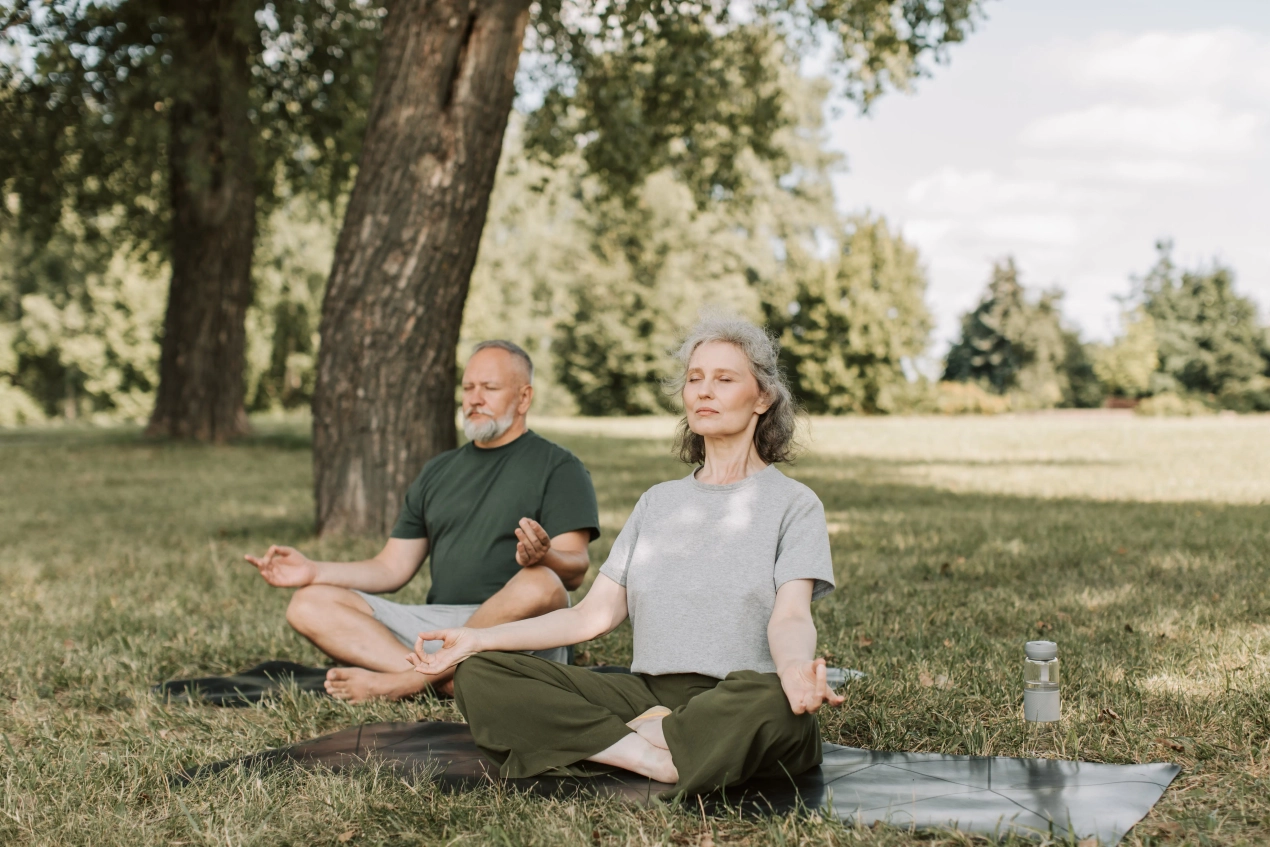
1. Mindful Meditation
Mindful meditation is a practice that cultivates present-moment awareness and promotes relaxation. It can be particularly beneficial for individuals with dementia as it helps to reduce stress and anxiety.
Examples include:
- Guided Breathing Exercise: Sit comfortably and focus on your breath, inhaling deeply through your nose and exhaling slowly through your mouth. Pay attention to the sensations of your breath as it enters and leaves your body.
- Body Scan Meditation: Close your eyes and bring your attention to different parts of your body, observing any sensations or areas of tension. Relax and release any discomfort.
- Nature Sound Meditation: Listen to calming nature sounds, such as ocean waves or birdsong, while focusing on your breath. Allow the sounds to transport you to a peaceful state of mind.
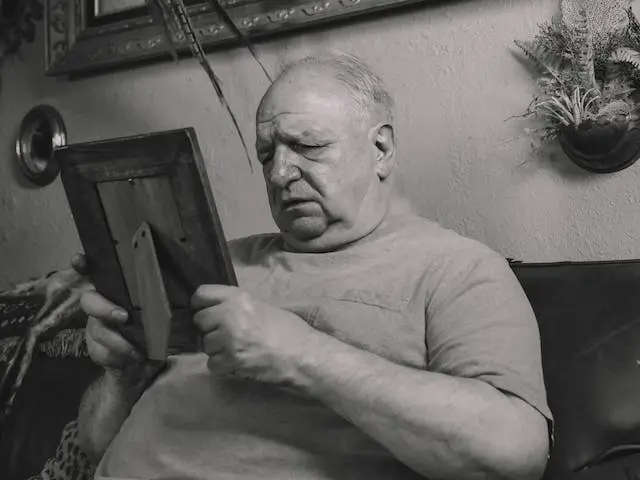
2. Memory Lane Exploration
Exploring and reminiscing about memories can be a powerful cognitive stimulation activity.
It encourages individuals to recall and share personal experiences, which can help improve memory and promote a sense of identity.
Memory lane exploration activities include:
- Photograph Album Activity: Go through old photo albums and discuss the memories associated with each picture. Encourage sharing stories and conversations about significant events or people captured in the photos.
- Memory Jar Creation: Create a memory jar where individuals can write down memorable experiences on slips of paper and place them in the jar. This activity provides a visual reminder of cherished memories.
- Life Timeline Drawing: Ask participants to create a timeline of their lives, highlighting important milestones and events. This activity stimulates memory recall and fosters a sense of accomplishment.
3. Music Therapy Sessions
Integrating music into cognitive therapy programs can enhance memory recall, boost mood, and improve cognitive function due to its profound effect on our emotions and cognitive abilities.
Here are a few music therapy session ideas:
- Listening to Classical Music: Play classical music pieces and encourage participants to listen attentively. Discuss the emotions and memories evoked by the music, fostering a sense of connection and engagement.
- Karaoke Sing-Along: Provide a selection of familiar songs and encourage participants to sing along. Singing engages multiple areas of the brain and can enhance cognitive function.
- Instrumental Jam Sessions: Offer a variety of musical instruments and encourage participants to play along with familiar tunes. This activity stimulates coordination, memory recall, and creative expression.
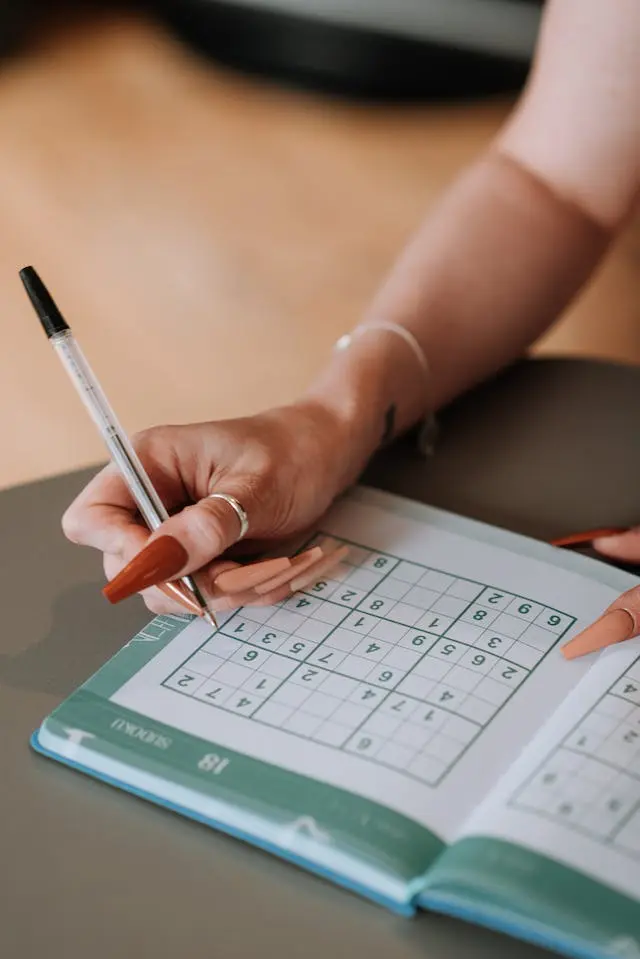
4. Brain-Teasing Puzzles
Puzzles are excellent cognitive stimulation tools as they challenge problem-solving skills, memory, and attention.
Engaging in brain-teasing puzzles can help individuals with dementia maintain cognitive function and improve mental agility.
Brain-teasing puzzles ideas include:
- Crossword Challenge: Provide crossword puzzles at various difficulty levels and encourage participants to solve them independently or collaboratively. This activity stimulates word recall and vocabulary skills.
- Sudoku Sessions: Offer Sudoku puzzles of different complexities and encourage participants to solve them. Sudoku promotes logical thinking, concentration, and memory.
- Jigsaw Puzzle Assembly: Encourage participants to assemble jigsaw puzzles with varying numbers of pieces. This activity enhances visual-spatial skills, hand-eye coordination, and attention to detail.
5. Interactive Technology Games
Interactive technology games offer a range of cognitive stimulation activities that can be tailored to individual needs and preferences. They provide opportunities for cognitive challenges and social interaction.
Here are a few examples of interactive technology games:
- Brain Training Apps: Utilize brain training apps that offer a variety of cognitive exercises, such as memory games, attention tasks, and problem-solving challenges. These apps can be accessed on tablets or smartphones.
- Virtual Reality Games: Engage individuals in virtual reality games that stimulate the mind and provide immersive experiences. Virtual reality technology can transport individuals to different environments and engage multiple senses.
- Online Trivia Competitions: Organize online trivia competitions where participants can test their knowledge and compete with others. This activity promotes memory recall, attention, and friendly competition.
6. Physical Exercise Routine
Engaging in regular exercise not only helps maintain physical health but also promotes cognitive function by enhancing blood flow to the brain and stimulating the release of chemicals that boost mood and cognitive abilities.
Examples of physical exercise routines include:
- Chair Yoga: Lead participants through seated yoga exercises that improve flexibility, strength, and balance. Chair yoga can be modified to accommodate various physical abilities.
- Balance Exercises: Incorporate balance exercises that challenge individuals to maintain stability and improve coordination. These exercises can be performed while standing or seated.
- Resistance Band Workouts: Resistance band workouts engage participants in strength-training exercises that target various muscle groups, improving overall strength and mobility.

7. Artistic Expressions
Engaging in artistic activities can enhance creativity, self-expression, and cognitive stimulation by providing an opportunity to engage imagination and cognitive abilities.
Artistic expression activities include:
- Canvas Painting Workshop: Provide canvases, paints, and brushes to participants during the painting workshop. Guide them through a creative and engaging painting activity, encouraging self-expression and the use of various techniques to produce unique works of art.
- Crafting with Recyclables: Engage individuals in crafting activities using recyclable materials, such as creating collages or sculptures. This activity stimulates problem-solving skills and promotes environmental awareness.
- Community Mural Project: Collaborate on a community mural project where participants can contribute their artistic skills to create a larger artwork. This activity fosters a sense of belonging and promotes social interaction.
8. Culinary Adventures
Cooking and culinary activities can be highly engaging and provide cognitive stimulation through following recipes, exploring flavors, and engaging the senses.
These include:
- Recipe Exploration: Provide participants with recipes from different cuisines and encourage them to explore new flavors and ingredients. Cooking stimulates memory recall, sensory perception, and problem-solving skills.
- Flavor Pairing Activity: Introduce participants to flavor pairing concepts and encourage them to experiment with combinations. This activity fosters creativity and cognitive flexibility.
- Cooking Class for Seniors: Cooking classes are designed for seniors to learn new recipes and techniques, providing social interaction and cognitive stimulation.
9. Nature Immersion
Spending time in nature has been shown to have numerous benefits for mental health and cognitive function. Engaging in nature immersion activities can provide a sense of tranquility and stimulate the senses.
Examples of nature immersion activities include:
- Outdoor Garden Walks: Take individuals on guided walks in gardens or nature trails, allowing them to observe and appreciate the beauty of nature. This activity promotes sensory stimulation and relaxation.
- Birdwatching Sessions: Provide binoculars and bird identification books, and lead participants in birdwatching activities. Birdwatching encourages attention to detail, observation skills, and a connection with the natural world.
- Nature Sketching: Encourage individuals to bring sketchbooks and pencils to outdoor settings, where they can sketch the natural surroundings. Nature sketching stimulates creativity, observation, and mindfulness.
10. Storytelling Workshops
Storytelling workshops provide a platform for creative expression, personal story-sharing, and cognitive enhancement.
Examples of storytelling workshops include:
- Personal Story Sharing Circle: Create a safe and supportive environment for participants to share personal stories and experiences. This activity fosters connection, validation, and memory recall.
- Collaborative Story Creation: Engage individuals in group storytelling activities, where each person contributes a sentence or paragraph to create a collective story. This activity stimulates imagination, collaboration, and cognitive flexibility.
- Memory-Based Story Prompts: Provide participants with memory-based prompts or photographs to inspire storytelling. This activity encourages memory recall, creativity, and social interaction.
How does cognitive stimulation therapy work for dementia patients?
Cognitive stimulation therapy is a type of therapy that provides people with dementia with engaging and stimulating activities that challenge their cognitive abilities.
This therapy aims to create an environment that promotes mental agility, enhances social interaction, and slows down cognitive decline.
Here are some ways in which cognitive stimulation therapy for dementia patients works:
- Cognitive Challenges: The activities involved in cognitive stimulation therapy provide challenges that stimulate different cognitive functions, such as memory, attention, problem-solving, and language skills.
- Social Interaction: Engaging in group activities during cognitive stimulation therapy encourages social interaction, which has been found to improve emotional well-being and cognitive function in individuals with dementia.
- Person-Centered Approach: Cognitive stimulation therapy is tailored to an individual’s interests, preferences, and abilities. This approach increases motivation and engagement.
- Structured and Regular Sessions: Cognitive stimulation therapy is typically conducted in structured and regular sessions, providing individuals with a consistent and predictable routine that promotes cognitive stimulation and progress.
The role of caregivers in cognitive stimulation therapy
Caregivers play a crucial role in cognitive stimulation therapy for individuals with dementia.
They provide support, encouragement, and guidance throughout the therapy process.
Caregivers contribute to cognitive stimulation therapy by:
- Facilitating Activities: Caregivers assist in organizing and facilitating the cognitive stimulation activities, ensuring that they are appropriate for the individual’s abilities and interests.
- Providing Emotional Support: Caregivers offer emotional support to individuals with dementia, creating a safe and nurturing environment that encourages engagement and participation in therapy.
- Monitoring Progress: Caregivers observe and monitor the progress of individuals participating in cognitive stimulation therapy, noting any improvements or changes in cognitive abilities.
- Maintaining Consistency: Maintaining consistency is important in cognitive stimulation therapy. Caregivers help by ensuring regular sessions and consistent work toward therapy goals.
Resources
These are some resources that offer support and tools for cognitive stimulation therapy:
- Alzheimer’s Association: The Alzheimer’s Association provides information, resources, and support for individuals with dementia and their caregivers.
- CogniFit: CogniFit offers online cognitive stimulation programs designed for people with dementia.
- Memory Lane: Memory Lane is an app that provides reminiscence therapy and cognitive stimulation activities for individuals with dementia.
- MindMate: MindMate is an app that offers cognitive stimulation games, brain training exercises, and memory aids for individuals with dementia.
- Age UK: Age UK is a charity organization that provides support and resources for older individuals, including those with dementia.
- Lumosity: Lumosity offers cognitive stimulation therapy through online brain training games.
Recap of 10 Cognitive Stimulation Therapy Activities
- Mindful Meditation: Guided breathing exercises, body scan meditation, etc.
- Memory Lane Exploration: Photo album activity, memory jar creation, etc.
- Music Therapy Sessions: Listening to classical music, karaoke sing-along, etc.
- Brain-Teasing Puzzles: Crossword challenge, sudoku sessions, etc.
- Interactive Technology Games: Brain training apps, virtual reality games, etc.
- Physical Exercise Routine: Chair yoga, balance exercises, etc.
- Artistic Expressions: Canvas paintings, crafting with recyclables, etc.
- Culinary Adventures: Cooking classes, recipe exploration, etc.
- Nature immersion: Outdoor garden walks, bird watching, etc.
- Storytelling Workshops: Personal story sharing, memory-based story prompts, etc.
Conclusion
Cognitive stimulation therapy is a powerful tool for enhancing mental agility and promoting cognitive function in individuals, particularly those with dementia.
These directories can help you find speech therapists in your area.
Engaging in a variety of stimulating activities, such as mindfulness meditation, memory lane exploration, music therapy sessions, brain-teasing puzzles, interactive technology games, physical exercise routines, artistic expressions, culinary adventures, nature immersion, and storytelling workshops, can have profound effects on cognitive abilities and overall well-being.
Individuals with dementia can experience an improved quality of life and slower progression of cognitive decline with the help of caregivers, resources, and tools designed for cognitive stimulation therapy.
Learn the difference between development delays and autism.
I strongly recommend exploring these articles below to gain valuable insights on providing effective memory care for your loved ones and fostering good memory.
- 13 Senior activities to boost happiness and mental stimulation
- Activities of Daily Living and free assessment tools for ADLs and IADLs
- Alzheimer and dementia: facts, symptoms, and treatment
- Find top memory care facilities in your area
- Top respite care service providers in your area
- Top 10 qualities of best Certified Dementia Practitioners
- 7-day meal plan for elderly individuals
- Must have 15 powerful tools for caregivers
Frequently Asked Questions (FAQs)
What is cognitive stimulation therapy?
Cognitive stimulation therapy (CST) is a treatment method that aims to enhance cognitive function and overall mental agility in individuals, particularly those with dementia.
How often should cognitive stimulation therapy sessions be conducted?
Cognitive stimulation therapy sessions should be conducted at least twice a week for consistent engagement and progress, but frequency can be adjusted based on individual preferences and needs.
Can cognitive stimulation therapy be done at home?
It’s possible to conduct cognitive stimulation therapy at home with the assistance of caregivers or family members. Many of the activities mentioned in this article can be easily adapted for home-based therapy.
Are there any side effects of cognitive stimulation therapy?
Cognitive stimulation therapy is generally safe with no known harmful side effects. However, it is important to consider individual abilities and limitations when selecting activities to ensure safety and comfort.
Can cognitive stimulation therapy be effective for individuals in the later stages of dementia?
Cognitive stimulation therapy can still be beneficial for individuals in the later stages of dementia, although the activities may need to be modified to accommodate their abilities. This therapy can help maintain cognitive function, stimulate sensory perception, and provide social interaction and emotional support.
Can cognitive stimulation therapy be combined with other dementia treatments?
Yes, cognitive stimulation therapy can be combined with other dementia treatments, such as medication and occupational therapy. It is essential to consult with healthcare professionals to determine the most appropriate treatment plan for each individual.
How long does it take to see the effects of cognitive stimulation therapy?
The effectiveness of cognitive stimulation therapy may vary depending on the individual and the frequency of therapy sessions. Some people may experience an improvement in their cognitive abilities within a few weeks of starting therapy, while others may require more time and consistent therapy sessions to see significant progress.

